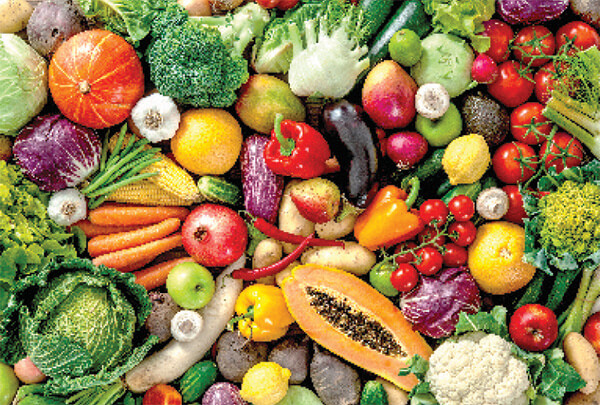Eating More Vegetables After Prostate Cancer Diagnosis
 The focus of the study was changing a patient’s lifestyle by counseling them to eat more vegetables and less meat, and to have a more active lifestyle. The idea behind the study was that a healthy diet would reduce inflammation, which could have a positive effect on prostate cancer’s development—and that professional counseling would help men make sustainable changes to their diet.
The focus of the study was changing a patient’s lifestyle by counseling them to eat more vegetables and less meat, and to have a more active lifestyle. The idea behind the study was that a healthy diet would reduce inflammation, which could have a positive effect on prostate cancer’s development—and that professional counseling would help men make sustainable changes to their diet.
Patients in the study were randomized into two groups. Men in the control group received the Prostate Cancer Foundation’s exercise and nutrition booklet. Men in the intervention group underwent counseling by phone with certified dieticians. The goal was for men to eat at least seven servings of vegetables a day. At the start of the study, men in both groups were eating a median of three servings of vegetables daily. The nutritional counseling appeared to be effective, with an increase of up to five servings of vegetables for men who received counseling, compared to fewer than four servings for patients in the control group.
In the short-term of a 2-year follow-up, the rates of disease progression (as measured by PSA) and treatment were similar among two groups. However, lead author J. Kellogg Parsons, M.D., emphasized that the trial successfully showed that sustainable behavior intervention can be effective for prostate cancer patients. Longer-term effects of the dietary and lifestyle changes would require further study. Some observational studies of different dietary patterns have found that diets such as the Mediterranean diet are associated with lower risks of aggressive prostate cancer.
The study’s research team presented their findings at the American Urological Association (AUA) annual meeting in May.
The Men’s Eating and Living (MEAL) study was a randomized clinical trial testing whether a high-vegetable diet would prevent prostate cancer progression in patients on active surveillance. MEAL was the first study on prostate cancer diet that was not based on nutritional supplements, but rather dietary changes.







